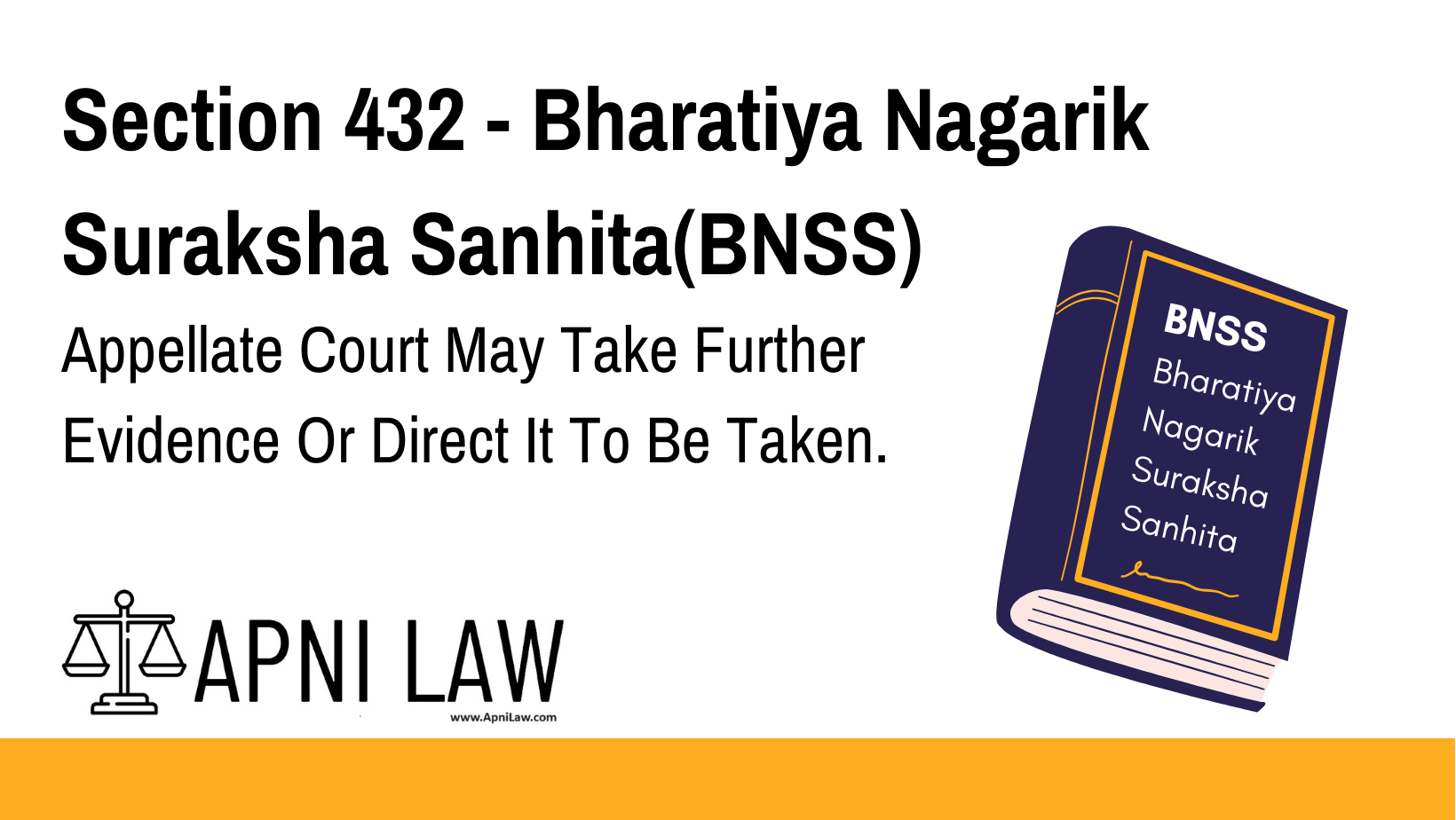Code: Section 432 BNSS
432.
(1) In dealing with any appeal under this Chapter, the Appellate Court, if it thinks additional evidence to be necessary, shall record its reasons and may either take such evidence itself, or direct it to be taken by a Magistrate or, when the Appellate Court is a High Court, by a Court of Session or a Magistrate.
(2) When the additional evidence is taken by the Court of Session or the Magistrate, it or he shall certify such evidence to the Appellate Court, and such Court shall thereupon proceed to dispose of the appeal.
(3) The accused or his advocate shall have the right to be present when the additional evidence is taken.
(4) The taking of evidence under this section shall be subject to the provisions of Chapter XXV, as if it were an inquiry.
Explanation of Section 432 BNSS
Section 432 of the BNSS outlines the procedures that the Appellate Court must follow when additional evidence is needed during the appeal process. If the Court believes additional evidence is necessary for a fair hearing, it has the discretion to either gather the evidence itself or instruct another Court, such as a Magistrate or Court of Session, to collect it. Once the evidence is gathered, it will be sent back to the Appellate Court to continue with the appeal process.
Key points from Section 432 include:
- Recording of Reasons: The Appellate Court must provide reasons for deciding that additional evidence is necessary.
- Right to Be Present: The accused or their advocate must be allowed to be present when additional evidence is being taken.
- Following Inquiry Procedures: The process of taking additional evidence must follow the provisions of Chapter XXV, as it would in an inquiry.
Illustration
Example 1: Appellate Court Seeking Additional Evidence
A person appeals a conviction, and the Appellate Court believes that additional evidence would help clarify some aspects of the case. The Court decides to gather this evidence, either by itself or by instructing a Magistrate or Court of Session to take it. Once collected, the evidence is sent back to the Appellate Court to continue the appeal process.
Example 2: The Accused’s Right to Be Present
During the appeal, the Appellate Court decides to take additional evidence. The accused or their advocate has the right to be present when this evidence is gathered, ensuring transparency in the process.
Common Questions and Answers on Section 432 BNSS
1. Can the Appellate Court take additional evidence itself?
- Answer: Yes, the Appellate Court can take the additional evidence itself or direct a Magistrate or Court of Session to take it on its behalf.
2. What happens after additional evidence is taken by the Magistrate or Court of Session?
- Answer: The Magistrate or Court of Session certifies the additional evidence and sends it back to the Appellate Court, which proceeds to dispose of the appeal.
3. Can the accused be present during the collection of additional evidence?
- Answer: Yes, the accused or their advocate has the right to be present when additional evidence is taken.
Conclusion
Section 432 ensures that the Appellate Court has the authority to request or gather additional evidence when needed for a fair appeal process. It also safeguards the rights of the accused by guaranteeing their presence during the taking of additional evidence and mandating the Court to follow inquiry procedures as outlined in Chapter XXV.








